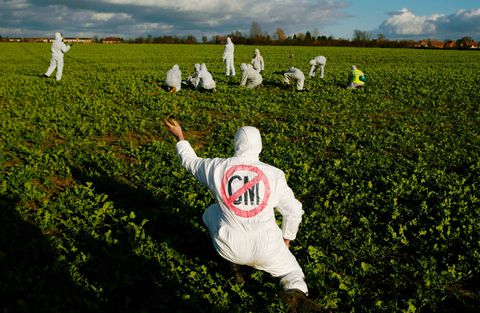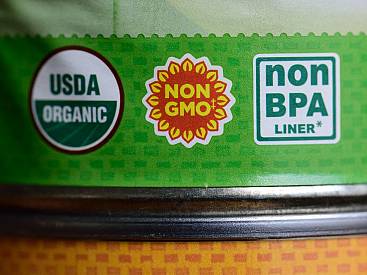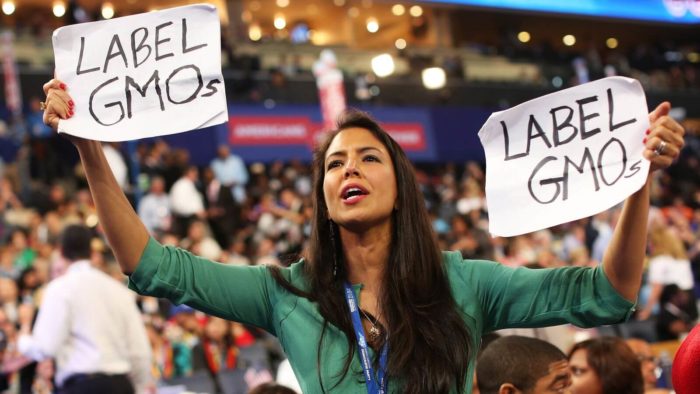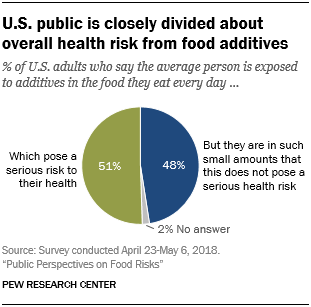Jul
30
2024
 The topic of genetically modified organisms (GMOs) is a great target for science communication because public attitudes have largely been shaped by deliberate misinformation, and the research suggests that those attitudes can change in response to more accurate information. It is the topic where the disconnect between scientists and the public is the greatest, and it is the most amenable to change.
The topic of genetically modified organisms (GMOs) is a great target for science communication because public attitudes have largely been shaped by deliberate misinformation, and the research suggests that those attitudes can change in response to more accurate information. It is the topic where the disconnect between scientists and the public is the greatest, and it is the most amenable to change.
The misinformation comes in several forms, and one of those forms is the umbrella claim that GMOs have been bad for farmers in various ways. But this is not true, which is why I have often said that people who believe the misinformation should talk to farmers. The idea is that the false claims against GMOs are largely based on a fundamental misunderstanding of how modern farming works.
There is another issue here, which falls under another anti-GMO strategy – blaming GMOs for any perceived negative aspects of the economics of farming. Like in many industries, farm sizes have grown, and small family farms (analogous to mom-and-pop stores) have given way to large corporate owned agricultural conglomerates. This is largely due to consolidation, which has been happening for over a century (long before GMOs). It happens because larger farms have an economy of scale – they can afford more expensive high technology farm equipment. They can spread out their risk more. They are more productive. And when a small farm owner retires without a family to leave it to, they tend to consolidate with a larger farm. Also, government subsidies tend to favor larger farms.
Continue Reading »
Dec
18
2023
 Even high quality media outlets will get it wrong from time to time. I notice this tends to happen when there is a mature and sophisticated propaganda campaign that has had enough time and reach to essentially gaslight a major portion of the public, and further where a particular expertise is required to understand why the propaganda is false. This is true, for example, for acupuncture, where even medical experts don’t have sufficient topic expertise to know why the claims being made are largely pseudoscience.
Even high quality media outlets will get it wrong from time to time. I notice this tends to happen when there is a mature and sophisticated propaganda campaign that has had enough time and reach to essentially gaslight a major portion of the public, and further where a particular expertise is required to understand why the propaganda is false. This is true, for example, for acupuncture, where even medical experts don’t have sufficient topic expertise to know why the claims being made are largely pseudoscience.
Where there is arguably the biggest gap between the scientific evidence and public opinion is genetically modified organisms (GMOs). There has been a well-funded and unfortunately successful campaign to unfairly and unscientifically demonize GMO technology, largely funded by the organic lobby but also environmental groups. Scientific pushback has ameliorated this somewhat. Further, the more time that goes by without the predicted “GMO apocalypse” the less urgent the fearmongering seems. Plus, genetic engineering works and is safe and is producing results, and people may be just getting more comfortable with it over time.
But it seems to me that there are still some people who are stuck in the anti-GMO narrative, and they are making increasingly poor and unconvincing arguments to sustain their negative attitude. An example is a recent article in The Conversation – Genetically modified crops aren’t a solution to climate change, despite what the biotech industry says. The article is by Barbara Van Dyck, who is a long time anti-GMO activist, even participating in disruptions of field trials. Let’s dive into her recent article.
Continue Reading »
Jul
07
2023
 Are attitudes towards genetically modified organisms (GMOs) in our agriculture softening? Back in 2015 a Pew survey found that the gap between public opinion and that of scientists was greatest on acceptance of GMOs (more than any other topic surveyed), with a 51% gap. But more recent data shows declining opposition. Regulators are also softening their stance, with Mexico walking back a ban on GMO corn from the US, and the EU considering softer rules on GMOs. Some countries, like the US, have also adopted new terminology, such as bioengineered, and carved out separate rules for crops made with altered genes but not with transgene insertions.
Are attitudes towards genetically modified organisms (GMOs) in our agriculture softening? Back in 2015 a Pew survey found that the gap between public opinion and that of scientists was greatest on acceptance of GMOs (more than any other topic surveyed), with a 51% gap. But more recent data shows declining opposition. Regulators are also softening their stance, with Mexico walking back a ban on GMO corn from the US, and the EU considering softer rules on GMOs. Some countries, like the US, have also adopted new terminology, such as bioengineered, and carved out separate rules for crops made with altered genes but not with transgene insertions.
We still have a way to go, and there is still enough opposition to slow adoption of useful agricultural technology. I like to think this is because the science is slowly winning the day. I do think many environmentalists have their heart in the right place, but sometimes get distracted by ideological positions, such as an aversion to anything “unnatural” or high tech. But if the stakes get high enough, the more moderate environmentalists can change their position. I think we are seeing this with nuclear power and the need to combat global warming. And I think we are seeing this with GMOs and the need to feed the world without destroying the environment. The benefits of GMOs are ultimately just too great to ignore.
But there is a lot of inertia in the anti-GMO propaganda that Greenpeace, the organic lobby, and others have been spreading for two decades. I was just recently asked about one specific claim that reflects the nature of this propaganda and how sticky it can be – aren’t GMOs killing the butterflies? The short answer is no, but as always the full story has lots of details. Here is a typical headline from the Environmental Working Group (who I personally find to be more ideological than science-based) – GMO-Linked Herbicide May Doom Monarch Butterflies. This framing was lazily reproduced by most mainstream reporting, but it is nothing but anti-GMO propaganda.
Continue Reading »
Sep
22
2020
 The issue of genetically modified organisms is interesting from a science communication perspective because it is the one controversy that apparently most follows the old knowledge deficit paradigm. The question is – why do people reject science and accept pseudoscience. The knowledge deficit paradigm states that they reject science in proportion to their lack of knowledge about science, which should therefore be fixable through straight science education. Unfortunately, most pseudoscience and science denial does not follow this paradigm, and are due to other factors such as lack of critical thinking, ideology, tribalism, and conspiracy thinking. But opposition to GMOs does appear to largely result from a knowledge deficit.
The issue of genetically modified organisms is interesting from a science communication perspective because it is the one controversy that apparently most follows the old knowledge deficit paradigm. The question is – why do people reject science and accept pseudoscience. The knowledge deficit paradigm states that they reject science in proportion to their lack of knowledge about science, which should therefore be fixable through straight science education. Unfortunately, most pseudoscience and science denial does not follow this paradigm, and are due to other factors such as lack of critical thinking, ideology, tribalism, and conspiracy thinking. But opposition to GMOs does appear to largely result from a knowledge deficit.
A 2019 study, in fact, found that as opposition to GM technology increased, scientific knowledge about genetics and GMOs decreased, but self-assessment increased. GMO opponents think they know the most, but in fact they know the least. Other studies show that consumers have generally low scientific knowledge about GMOs. There is also evidence that fixing the knowledge deficit, for some people, can reduce their opposition to GMOs (at least temporarily). We clearly need more research, and also different people oppose GMOs for different reasons, but at least there is a huge knowledge deficit here and reducing it may help.
So in that spirit, let me reduce the general knowledge deficit about GMOs. I have been tackling anti-GMO myths for years, but the same myths keep cropping up (pun intended) in any discussion about GMOs, so there is still a lot of work to do. To briefly review – no farmer has been sued for accidental contamination, farmers don’t generally save seeds anyway, there are patents on non-GMO hybrid seeds, GMOs have been shown to be perfectly safe, GMOs did not increase farmer suicide in India, and use of GMOs generally decreases land use and pesticide use.
Continue Reading »
Aug
01
2019
A 2015 Pew survey found that 88% of AAAS scientists believe that GMOs (genetically modified organisms) are generally safe to eat, while only 37% of the general public did. This was the biggest gap, 51%, of any science attitude they surveyed – greater than evolution or climate change. This hasn’t changed much since. A 2018 Pew survey found that 49% of US adults think that GMOs are worse for your health. These numbers are also similar in other countries.
found that 88% of AAAS scientists believe that GMOs (genetically modified organisms) are generally safe to eat, while only 37% of the general public did. This was the biggest gap, 51%, of any science attitude they surveyed – greater than evolution or climate change. This hasn’t changed much since. A 2018 Pew survey found that 49% of US adults think that GMOs are worse for your health. These numbers are also similar in other countries.
An important underlying question for science communicators is – what is the source and therefore potential solution to this disconnect between experts and the public? In other words – what drives anti-scientific or pseudoscientific attitudes in the public? The classic answer is the knowledge deficit model, that people reject science because they don’t understand it. If true, then the answer is science education and fostering greater scientific literacy.
However, psychological research over the last two decades has called into question the knowledge deficit model. Studies have found that giving facts often has not result, or may even create a backfire effect (although to scope of this is still controversial). Some research suggests you have to confront a person’s explanatory narrative and replace it with another. Others indicate that ideological beliefs are remarkably resistant to alteration with facts alone.
But the knowledge deficit model is not dead yet. It seems that we have to take a more nuanced approach to unscientific beliefs in the public. This is a heterogeneous phenomenon, with multiple causes and therefore multiple potential solutions. For each topic we need to understand what is driving that particular belief, and then tailor an approach to it.
Continue Reading »
Apr
16
2019
 The FDA has released its guidelines for voluntary labeling of food products with respect to whether or not they contain ingredients that either are, or are derived from, genetically modified organisms (GMOs). The guidelines, if nothing else, are a good way for consumers to become more savvy to all the ways in which companies can use food labels that are technically truthful, but are designed to deceive.
The FDA has released its guidelines for voluntary labeling of food products with respect to whether or not they contain ingredients that either are, or are derived from, genetically modified organisms (GMOs). The guidelines, if nothing else, are a good way for consumers to become more savvy to all the ways in which companies can use food labels that are technically truthful, but are designed to deceive.
However, it’s frustrating that these are just voluntary guidelines. They are not policy, so companies are free to just ignore them. Hopefully, they are a precursor to actual policy and regulations, but Congress had done a good job of keeping the FDA too weak to actually fulfill its mandate. So often they are left to firing off strongly worded letters, warnings, and voluntary guidelines.
Here are some of the deceptive practices the FDA discusses. Obviously they go over the basics of being accurate and truthful – what it considers a GMO, etc. These are mostly obvious or technical. More interesting are the ways in which labels deceive by omission or by implications.
For example, the guidelines note:
For example, on a product made largely of flour derived from genetically engineered corn and a small amount of non-genetically engineered soybean oil, a claim that the product “does not contain bioengineered soybean oil” could be misleading if consumers believe that the entire product, or a larger portion of it than is actually the case, is free of bioengineered material.
Continue Reading »
Jan
15
2019
 I have written extensively about GMOs (gentically modified organisms) here, and even dedicated a chapter of my book to the topic, because it is the subject about which the difference between public opinion and the opinion of scientists is greatest (51%). I think it’s clear that this disparity is due to a deliberate propaganda campaign largely funded by the organic lobby with collaboration from extreme environmental groups, like Greenpeace.
I have written extensively about GMOs (gentically modified organisms) here, and even dedicated a chapter of my book to the topic, because it is the subject about which the difference between public opinion and the opinion of scientists is greatest (51%). I think it’s clear that this disparity is due to a deliberate propaganda campaign largely funded by the organic lobby with collaboration from extreme environmental groups, like Greenpeace.
This has produced an extreme, if not a unique, challenge for science communicators. Also – there are direct implications for this, as the political fight over GMO regulation and acceptance is well underway. The stakes are also high as we are facing challenges feeding a growing population while we are already using too much land and there really isn’t more we can press into agriculture. (Even if there are other ways to reduce our land use, that does not mean we should oppose a safe and effective technology that can further reduce it.)
A new study published in Nature may shed further light on the GMO controversy. The authors explore the relationship between knowledge about genetics and attitudes toward GMOs.
In a nationally representative sample of US adults, we find that as extremity of opposition to and concern about genetically modified foods increases, objective knowledge about science and genetics decreases, but perceived understanding of genetically modified foods increases. Extreme opponents know the least, but think they know the most.
Continue Reading »
Nov
26
2018
 The Pew Research Center has recently published a large survey regarding American’s attitudes toward food, including genetic modification, food additives, and organics. There are some interesting findings buried in the data that are worth teasing out.
The Pew Research Center has recently published a large survey regarding American’s attitudes toward food, including genetic modification, food additives, and organics. There are some interesting findings buried in the data that are worth teasing out.
First, some of the top line results. They found that 49% of Americans feel that genetically modified organisms (GMOs) are bad for health, while 44% said they were neutral, and 5% said they were better. So the public is split right down the middle over the health effects of GMOs. The 49% who feel that GMOs are bad for health is up from 39% when they gave the same survey in 2016 – so unfortunately, we have lost ground on this issue.
Breaking these numbers down, we find that women are a little more likely to fear GMOs as a health risk than men, 56% compared to 43%. I suspect this is due primarily to differences in how anti-GMO messages are marketed, and the general marketing of pseudoscience to women (the Goop effect). This is also significant because women are more likely to make food purchasing decisions for their families.
Even more interesting is the relationship between science knowledge and fear of GMO’s – among those with a high degree of science knowledge, 38% thought GMOs had health risks, while 52% of those with a low degree of science knowledge thought so. The same pattern is seen through all the subquestions about GMOs. For example, 49% of those with a high degree of science knowledge believe GMOs have the potential to increase the global food supply, while only 20% of those with a low degree of science knowledge believe this.
Continue Reading »
Sep
25
2018
 The organic food lobby has been successfully demonizing safe and effective biotechnology for the last two decades. Part of their strategy is to create a false dichotomy between GMO (genetically modified organisms) and non-GMO. In reality there is a continuum of methods used to alter the genetics of crops that we have been using for centuries. There are real differences among these various techniques, but they do not divide cleanly into two categories (more on this below).
The organic food lobby has been successfully demonizing safe and effective biotechnology for the last two decades. Part of their strategy is to create a false dichotomy between GMO (genetically modified organisms) and non-GMO. In reality there is a continuum of methods used to alter the genetics of crops that we have been using for centuries. There are real differences among these various techniques, but they do not divide cleanly into two categories (more on this below).
The Non-GMO Project is part of this strategy. You have probably seen the labels, with the appealing butterfly reassuring consumers about the wholesomeness of products. Even when there are no GMO options for a food type, you can get the label. This scam makes money for the Non-GMO Project and is good for marketing. The goal is to eradicate any technology this non-expert and private group decides is GMO.
Now, the Information Technology and Innovation Foundation is hitting back. They are a non-profit science think tank whose purpose is to provide non-partisan science information to inform policy. They have submitted a petition to the FDA:
The Non-GMO Project food label deliberately deceives and misleads consumers in violation of the Federal Food, Drug and Cosmetic Act. ITIF petitions FDA to prohibit such labels. The “Non-GMO” Project butterfly logo and label on consumer foods and goods misleads and deceives consumers through false and misleading claims about foods, food ingredients and their characteristics related to health and safety, thus constituting misbranding under the law. ITIF therefore requests, in a Citizen’s Petition submitted to the Commissioner of Food and Drugs, that FDA issue a regulation to prohibit the use of the term “Non-GMO” on consumer foods and goods, and to require distributors of foods and goods to revise their labeling to omit any “Non-GMO” term, symbol, or claims.
This is essentially correct – one could argue that the purpose of the Non-GMO label is to confuse and misinform consumers, in order to extract more money out of them for equivalent or even inferior products.
Continue Reading »
Jul
27
2018
 A recent EU court ruling on GMO regulations might just hoist the anti-GMO movement on its own petard. The ruling covers so-called new plant breeding techniques (NPBTs). I am not exactly clear on the full scope of what counts as an NPBT, but it does include CRISPR. Some reports also say it includes “mutagenesis plant breeding techniques.”
A recent EU court ruling on GMO regulations might just hoist the anti-GMO movement on its own petard. The ruling covers so-called new plant breeding techniques (NPBTs). I am not exactly clear on the full scope of what counts as an NPBT, but it does include CRISPR. Some reports also say it includes “mutagenesis plant breeding techniques.”
Part of the problem with the anti-GMO movement is that what counts as a GMO is vague and arbitrary. If you follow organic policy, GMO’s include any form of gene editing, but not mutation breeding (using chemicals or radiation to increase the rate of random mutations in plants). In fact scientific critics of the anti-GMO movement having repeatedly pointed this out as a glaring contradiction – opposing precise single gene changes, but not random mutations.
This ruling by an EU court expands the net of GMO farther, revealing the risk of relying on such vague and arbitrary categories. This is important because it means that a long list of breeding techniques are now prohibitively regulated in the EU. This move was in opposition to scientific organizations in Europe:
For the European Academies Science Advisory Council (EASAC), a body representing the national science academies of all 28 EU member states, the decision represents a “setback for cutting-edge science and innovation in the EU”.
“EASAC reaffirms that breakthroughs in plant breeding technologies, such as genome editing, remain crucial for food and nutrition security globally. It remains to be seen what implications this decision may have outside of the EU, particularly in developing countries who stand to benefit most from crops that better withstand the devastating effects of climate change,” EASAC said.
It is generally a bad idea for a society to consistently go against the consensus of opinion of its own scientists for pure ideology, irrational fear, or because of industry favoritism. In the case of the anti-GMO movement, all three are involved.
Continue Reading »
 The topic of genetically modified organisms (GMOs) is a great target for science communication because public attitudes have largely been shaped by deliberate misinformation, and the research suggests that those attitudes can change in response to more accurate information. It is the topic where the disconnect between scientists and the public is the greatest, and it is the most amenable to change.
The topic of genetically modified organisms (GMOs) is a great target for science communication because public attitudes have largely been shaped by deliberate misinformation, and the research suggests that those attitudes can change in response to more accurate information. It is the topic where the disconnect between scientists and the public is the greatest, and it is the most amenable to change.
 Even high quality media outlets will get it wrong from time to time. I notice this tends to happen when there is a mature and sophisticated propaganda campaign that has had enough time and reach to essentially gaslight a major portion of the public, and further where a particular expertise is required to understand why the propaganda is false. This is true, for example,
Even high quality media outlets will get it wrong from time to time. I notice this tends to happen when there is a mature and sophisticated propaganda campaign that has had enough time and reach to essentially gaslight a major portion of the public, and further where a particular expertise is required to understand why the propaganda is false. This is true, for example,  Are attitudes towards genetically modified organisms (GMOs) in our agriculture softening? Back in 2015
Are attitudes towards genetically modified organisms (GMOs) in our agriculture softening? Back in 2015  The issue of genetically modified organisms is interesting from a science communication perspective because it is the one controversy that apparently most follows the old knowledge deficit paradigm. The question is – why do people reject science and accept pseudoscience. The knowledge deficit paradigm states that they reject science in proportion to their lack of knowledge about science, which should therefore be fixable through straight science education. Unfortunately, most pseudoscience and science denial does not follow this paradigm, and are due to other factors such as lack of critical thinking, ideology, tribalism, and conspiracy thinking. But opposition to GMOs does appear to largely result from a knowledge deficit.
The issue of genetically modified organisms is interesting from a science communication perspective because it is the one controversy that apparently most follows the old knowledge deficit paradigm. The question is – why do people reject science and accept pseudoscience. The knowledge deficit paradigm states that they reject science in proportion to their lack of knowledge about science, which should therefore be fixable through straight science education. Unfortunately, most pseudoscience and science denial does not follow this paradigm, and are due to other factors such as lack of critical thinking, ideology, tribalism, and conspiracy thinking. But opposition to GMOs does appear to largely result from a knowledge deficit.
 The FDA has released its guidelines
The FDA has released its guidelines I have written
I have written  The Pew Research Center has recently
The Pew Research Center has recently  The organic food lobby has been successfully demonizing safe and effective biotechnology for the last two decades. Part of their strategy is to create a false dichotomy between GMO (genetically modified organisms) and non-GMO. In reality there is a continuum of methods used to alter the genetics of crops that we have been using for centuries. There are real differences among these various techniques, but they do not divide cleanly into two categories (more on this below).
The organic food lobby has been successfully demonizing safe and effective biotechnology for the last two decades. Part of their strategy is to create a false dichotomy between GMO (genetically modified organisms) and non-GMO. In reality there is a continuum of methods used to alter the genetics of crops that we have been using for centuries. There are real differences among these various techniques, but they do not divide cleanly into two categories (more on this below). A recent EU court ruling
A recent EU court ruling




